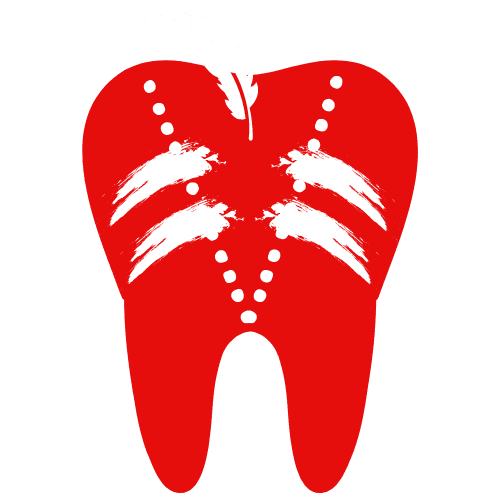
One importance of chewing from a young age 🥰

Childhood diet may contribute to impacted wisdom teeth, USask research shows.
Have you ever wondered why so many people end up with impacted wisdom teeth, which cause discomfort, pain and infection, and often require expensive surgical removal? A University of Saskatchewan (USask) graduate student researcher says your childhood diet may have something to do with it.
“Dialing back the clock just a few hundred years to before the Industrial Revolution, we don’t see impacted wisdom teeth in most people, including our great-great-great-great grandparents,” said Elsa Van Ankum, an evolutionary developmental anthropology PhD student in the Department of Anatomy, Physiology and Pharmacology in USask’s College of Medicine. “While working as a University of Alberta undergraduate student analyzing skeletons at archeological sites in Greece and China, I couldn’t help but compare their straight teeth to my own orthodontically challenged teeth. I’ve had braces and all four wisdom teeth removed.
“I started to question why braces and wisdom tooth surgeries were so widespread today, and I’ve been following this thread ever since.”
Many things in the diet changed after the Industrial Revolution, including consuming soft-textured foods that were now being processed in factories by machines that partly ‘chewed’ our foods before we bought them. As well, the diets increasingly lacked vitamin D.
Through lab experiments, Van Ankum has found that mice raised on a soft food diet that was also deficient in vitamin D tend to have smaller, differently shaped jaws. Vitamin D is important for healthy bone and tooth formation and growth. Lack of vitamin D also appeared to result in wider tooth roots, which connect the tooth to the jawbone, influencing the size of the root canal.
Because humans and mice process vitamin D in slightly different ways, Van Ankum is travelling to Britain to collect data from human skeletal remains excavated from archeological sites. She is sampling skeletal remains from before and after 1850, the year that serves as a general marker of when dietary changes due to the Industrial Revolution become evident in teeth and jawbones, among other bones. Van Ankum plans to test whether wisdom tooth formation and jaw shape and size differ between pre- and post-Industrial populations.
“Wisdom tooth surgeries are painful and costly. For instance, over a period of four years, even just one insurance provider in Saskatchewan processed 13,500 wisdom tooth extraction surgeries, costing $2.2 million dollars,” said Van Ankum.
“My PhD study is the first to test if the timing of molar development is linked to food texture, vitamin D, and jaw form using human archeological samples. We are closer to explaining why our wisdom teeth give us such problems, which could lead to non-invasive strategies, like changing what we eat as kids, to prevent wisdom tooth impaction.”
Van Ankum has presented her preliminary research findings at several academic conferences since 2019, and made an award-winning presentation at the 2020 meeting of the Canadian Association for Biological Anthropology. Her work is supervised by USask Professor Dr. Julia Boughner (PhD).
“This project is an example of foundational science,” said Van Ankum. “This type of research seeks to understand why nature does what it does, towards one day shaping policy development and practical applications for dental patients in Canada and beyond.”
She’ll also further explore the links between vitamin D and tooth development in mice, using the information gleaned from human skeletal studies in Britain. She hopes to shed light on why differences in tooth size, shape and eruption can occur across time periods, cultures, and even mammalian species.
“I feel grateful to be a part of this process, especially at a time with many exciting avenues of collaboration between disciplines.”
The research has been supported by the Canada Foundation for Innovation, a Natural Sciences and Engineering Council of Canada (NSERC) Discovery Grant, an NSERC Undergraduate Summer Research Award, NSERC Alexander Graham Bell PhD Canada Graduate Scholarship, an NSERC MSc Canada Graduate Scholarship, and a Saskatchewan Innovation and Opportunity Scholarship.
BROOKE KLEIBOER
Oct 4, 2022
Get in Touch
We're here to help you with your dental needs. Please fill out the form below, and we'll get back to you as soon as possible.
Contact
Send us an email
[email protected]